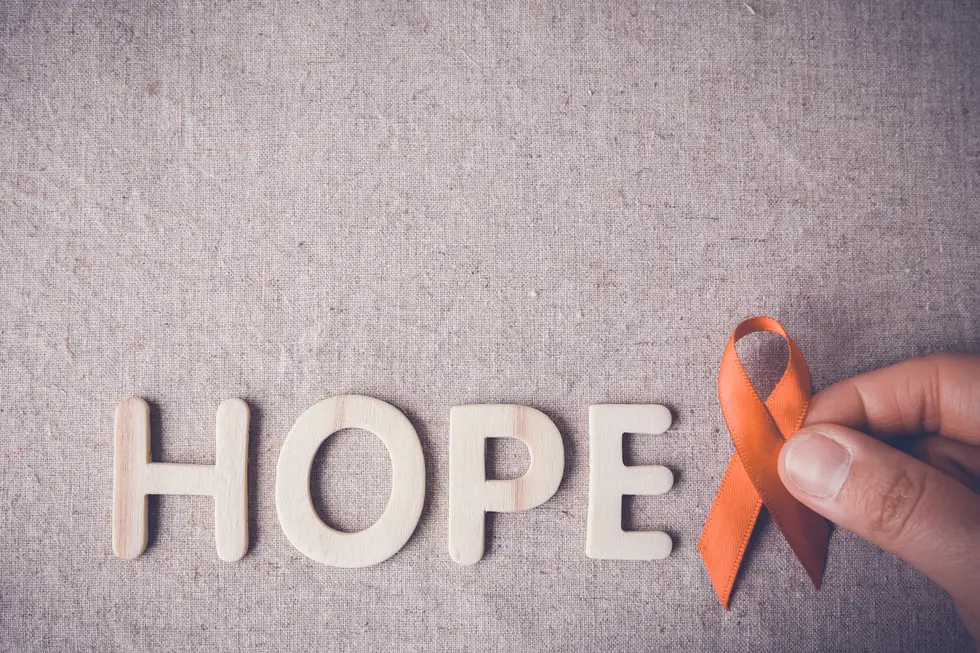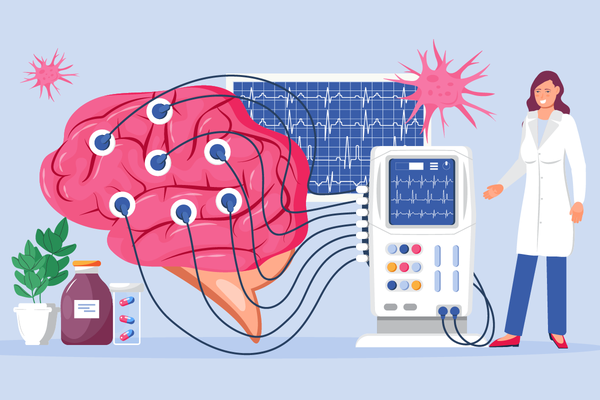Three and a half years ago, my life completely changed. I had just launched a digital media company called Motherly. My plate was full with work and two young children, but since I thrive working on projects that mean something to me, I was enjoying this exciting and intense time in my life.
One morning, I sat down at my computer to work and noticed a blurriness in my right eye, like looking through a screen. But I was busy and excused it as a smudge on my contact and ignored it. But when I changed my lens the next day and the blurriness was still there, I decided it was time to call my optometrist.
When you have dramatic vision shifts at the age of 35, doctors squeeze you into their schedule immediately. I was quickly seen by my optometrist and a retina specialist, and scheduled for a follow-up appointment two days later. After a number of exams and a consult with a neuro-ophthalmologist, the doctors told me they had an idea of what it could be, but they wanted to do an MRI. They mentioned a bunch of possible diagnoses, including multiple sclerosis, and at that point, I just knew. My family history of autoimmune diseases ran through my head – a cousin with Hashimoto's disease, another cousin with Celiac Disease, a cousin with Guillain-Barre syndrome, an uncle with Lupus, and a great aunt with Multiple Sclerosis.
I distinctly remember being in the children's shoe section at Target when the doctors called me with my MRI results. They found 8 to 10 lesions in my brain, including one active lesion on my right optic nerve that was causing my vision issues. This was looking more and more like MS, yet they still needed more tests to make a full diagnosis. Even though I'd somewhat mentally prepared myself for a serious diagnosis like MS, I was emotionally rocked to my core. I recall walking in a daze, with my daughters in tow, to the checkout line in Target and happened to run into a friend. She casually said, "Hey Jill. How are you?" and I just blurted out, "I think I have MS."
I have always been healthy–I eat well, take care of myself, and am almost hyper-focused on my health. So, the fact that I could have a chronic illness was hard to wrap my mind around at first. But I tend to have a strong bias for action, and quickly decided to spring into action and get answers quickly. When I couldn't get into the MS specialist near me, I leveraged my network and found a way into an MS origins study at UCSF with the head of the MS clinic as my doctor.
And then my entire world just stopped. I received the life-changing diagnosis of MS.
I remember reading the book "When Breath Becomes Air" by Paul Kalanithi and he describes the feeling of deep loss one experiences with an incurable medical diagnosis for everything you had dreamed about and anticipated for yourself. I found myself grieving for a future I didn't realized I'd already imagined for myself. It was incredibly overwhelming, and the overwhelm did not stop with the diagnosis.
Once diagnosed with MS, you are confronted with many drug treatment options and asked to choose. This is a scary prospect, as you have to decide how aggressive you want to be, what risks you are going to take, and what you are willing to sacrifice to take these meds. It was the first time in my life that I felt like a victim. I was considering the most effective and aggressive treatment plan that would help me from ever fully developing MS. The associated risks with the drugs, however, were severe.
My friend and former colleague said to me, "I have never known you to be anything than aggressive at everything you do in life. I hope that MS hasn't already changed you." And that decided it for me. I chose to take the aggressive meds and I was lucky that my health insurance covered it and my doctors supported my decision.
I know that this isn't the typical MS story. I was fortunate to be diagnosed very quickly–from symptom onset to a full diagnosis within 10 days. And the sooner you are diagnosed, the sooner you can start treatment, and the better off you are because MS symptoms can layer on itself. While my story isn't typical, I believe it can be if others advocate for themselves as I did. When I couldn't get into a doctor, I called around and didn't stop until I found a doctor who would see me. If you hit a wall, you keep pushing or find another way.
I am now flourishing. I have no disease progression and my vision is back to 20/20 with my contacts. I continue to do an MRI yearly as part of a study that I'm in. I have minor, nearly undetectable weakness in my hand and foot on my dominant side, but I like to say this just makes me more balanced!
I was brought to my knees when I learned I had multiple sclerosis. I mistakenly googled the disease and saw all the people suffering. I didn't see any hopeful stories like mine and I felt so defeated and scared. I mentor other female entrepreneurs because I believe that if you can see it, you can be it and the same is true here. I'm sharing my story so others can see that you don't have to be defined by your disease or diagnosis. I want others to feel hope – and I want people to see that it is possible to flourish and thrive with MS.
Jill Koziol is the co-founder and CEO of Motherly, a modern lifestyle brand redefining motherhood. She is passionate about serving and empowering women and mothers because when mamas are successful, everyone wins. She is an advocate for families, female founders, and how to thrive with multiple sclerosis. She resides in Menlo Park, California with her husband and two daughters.
- Tips for Living with Multiple Sclerosis (MS) ›
- Living with Multiple Sclerosis ›
- What You Need to Know About Multiple Sclerosis ›
- Living With Multiple Sclerosis Means Always Being My Own Advocate - HealthyWomen ›
- Multiple Sclerosis Treatment & Shared Decision-Making - HealthyWomen ›
- Finding Silver Linings Through My Work as a Health Advocate Has Helped Me Live with MS for 38 Years - HealthyWomen ›







